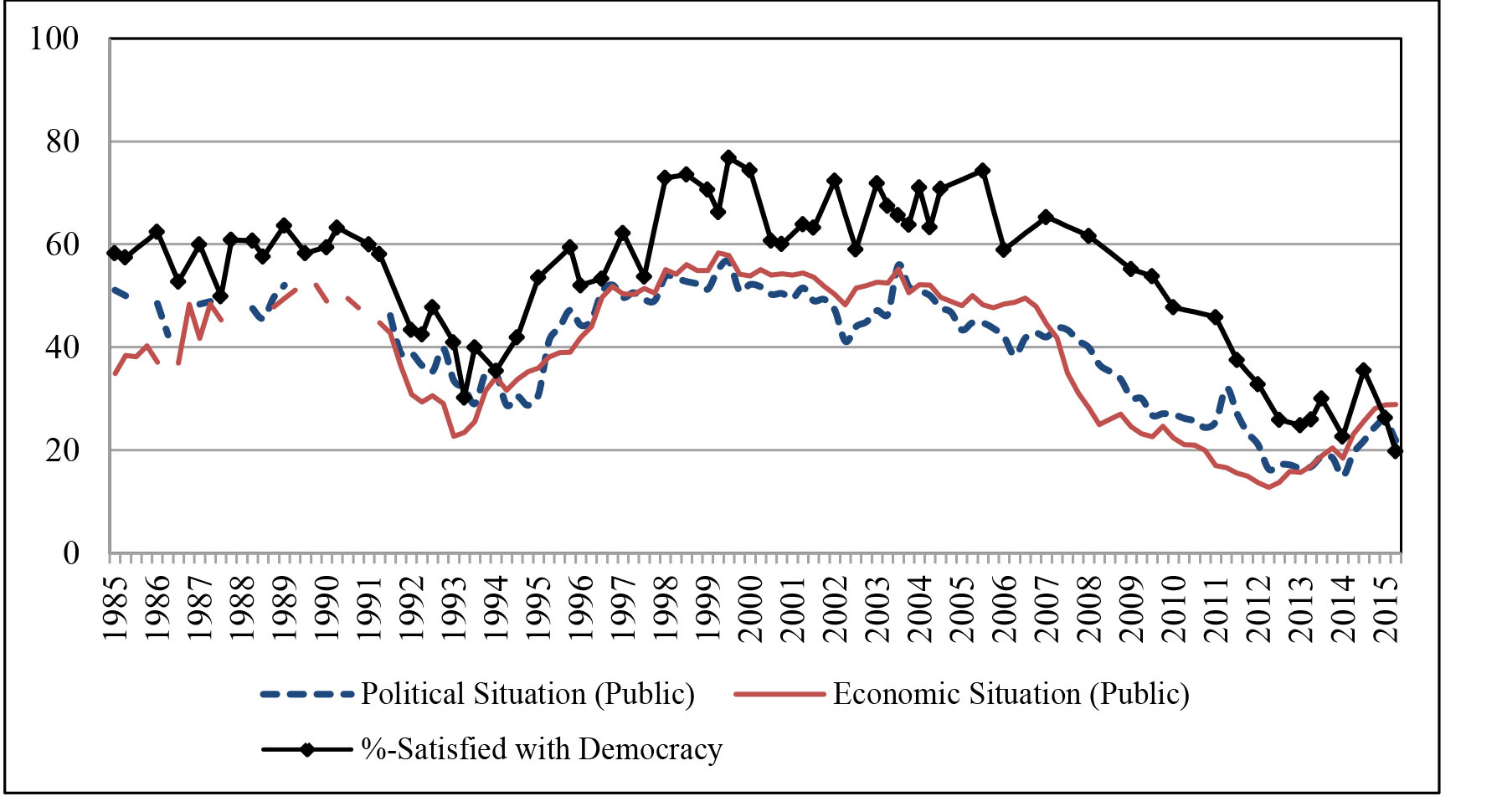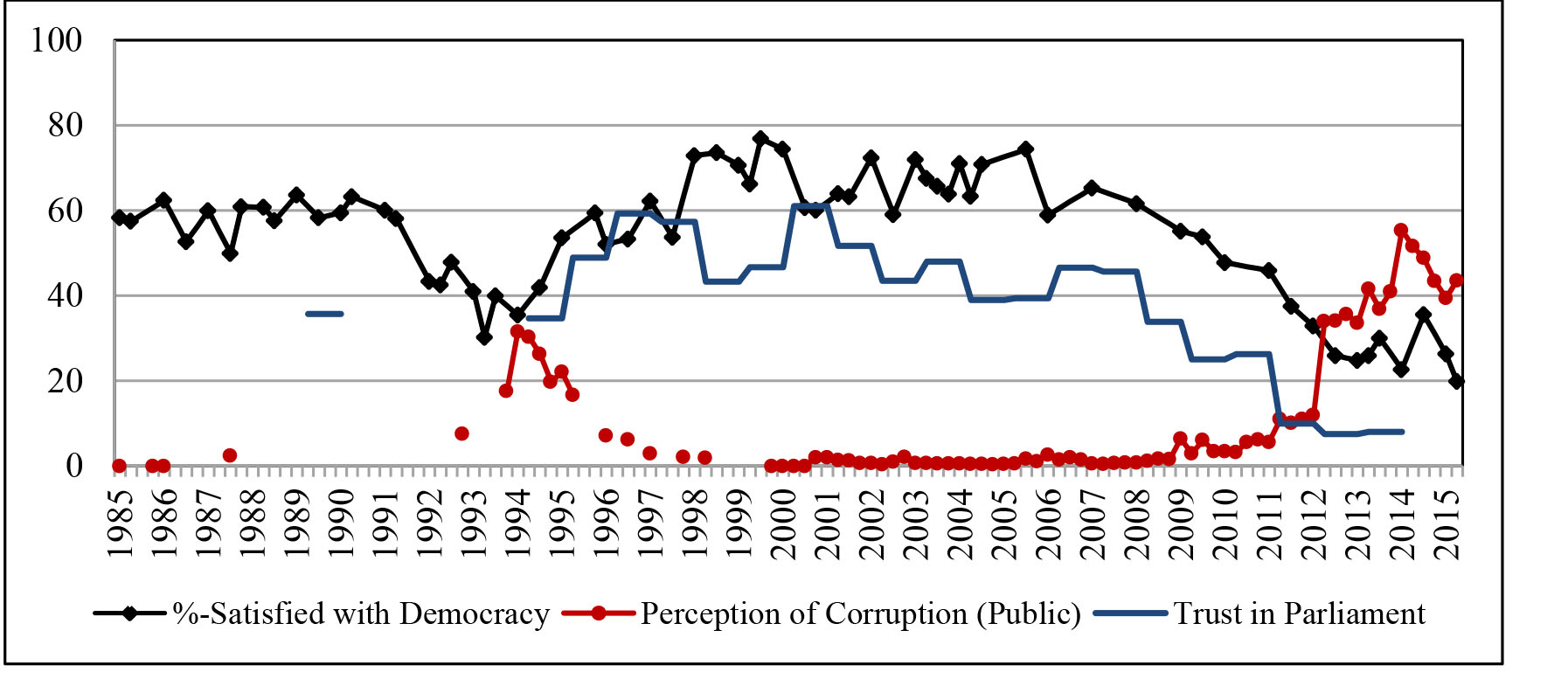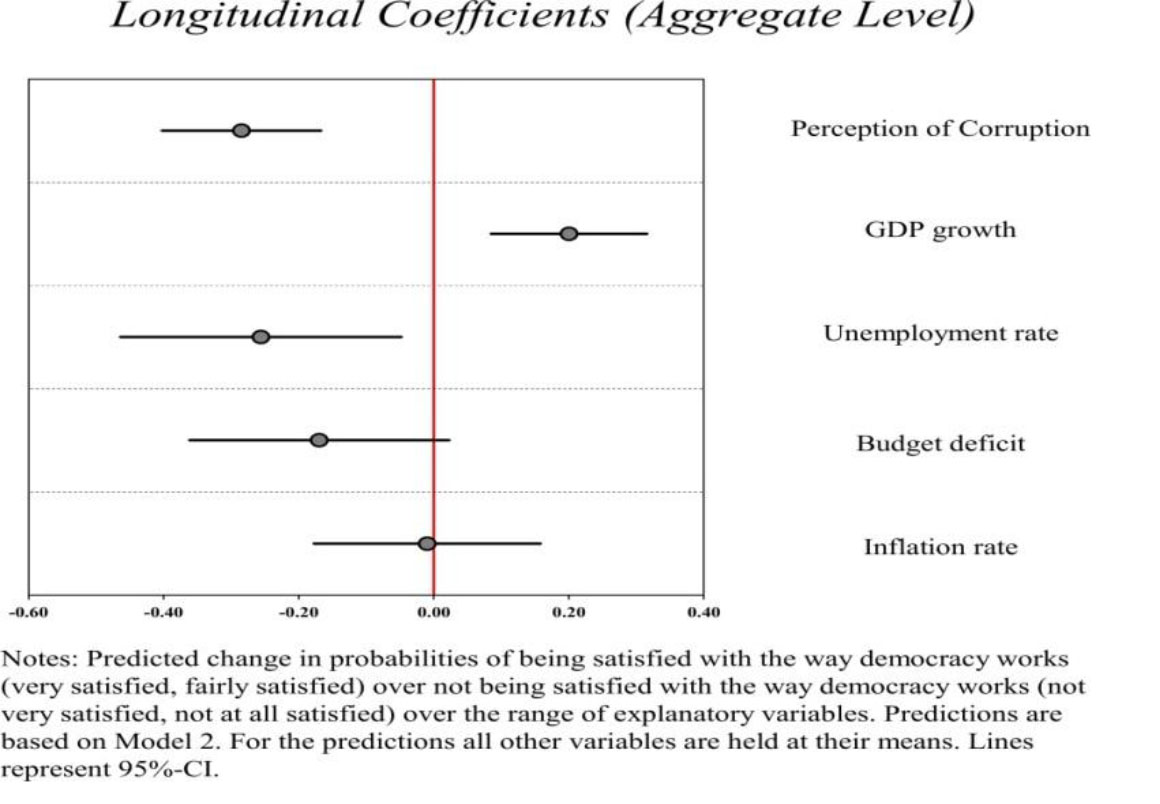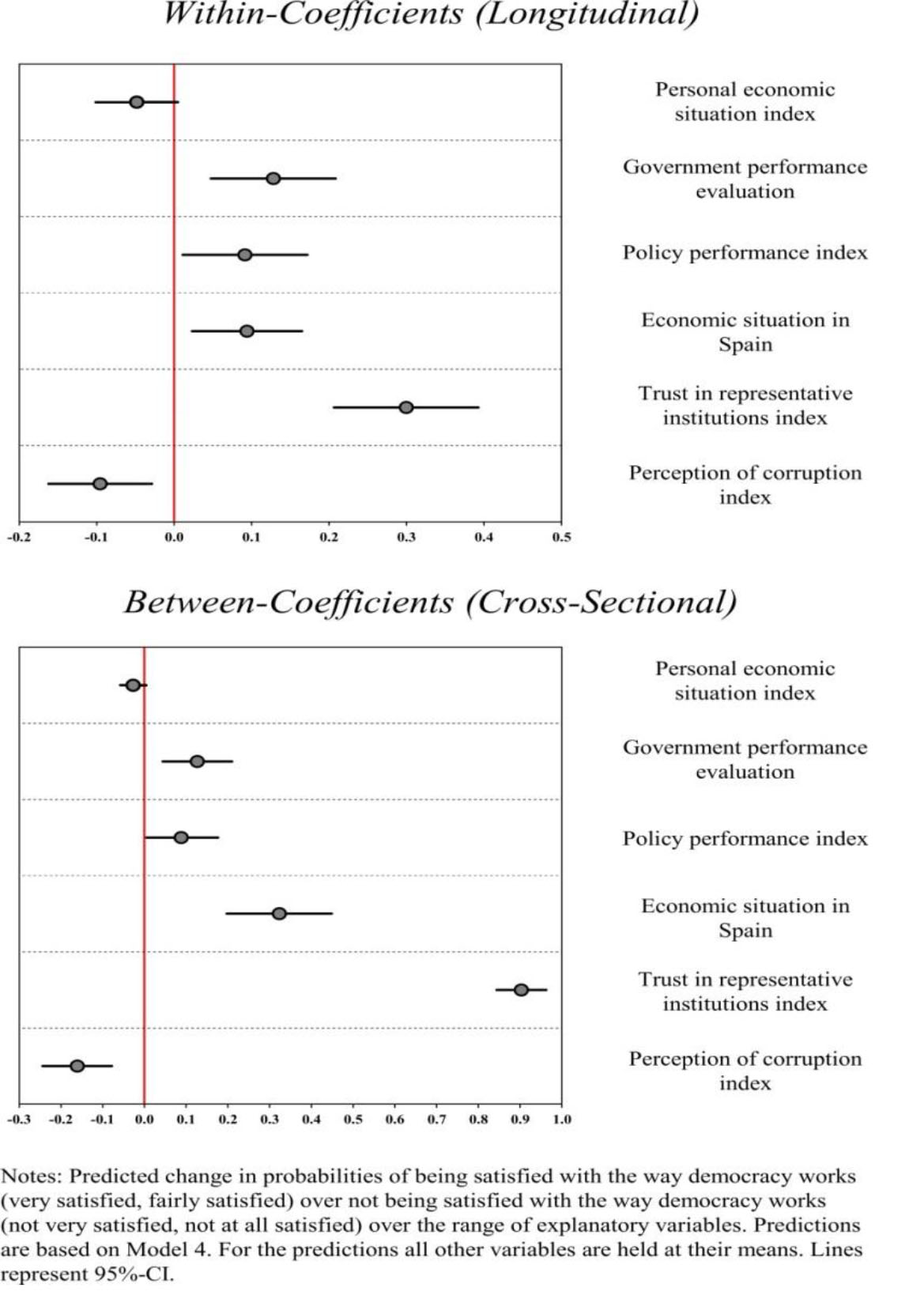Political corruption is determinant in the low satisfaction with democracy in Spain
A study by Pablo Christmann and Mariano Torcal, lecturers in the Department of Political and Social Sciences at UPF, shows that aspects related to the malfunctioning of democracy are as or more important than those linked to the social and economic impact of the crisis when it comes to shaping citizen perceptions.

The level of satisfaction with democracy is a good indicator of the health of a democratic system, at least in terms of how it is perceived and assessed by its citizens.
This indicator has declined sharply in Spain in recent years, a fact that has been attributed to the social and economic impact of the Great Recession and to the austerity measures implemented by the Spanish government with the blessing of the European Union.
However, a study by Pablo Christmann and Mariano Torcal, lecturers in the Department of Political and Social Sciences and researchers at the UPF Research and Expertise Centre for Survey Methodology (RECSM), recently published in the journal West European Politics, shows that this view tells only part of the story.
According to the study’s authors, the results show that whilst socio-economic factors are important, so are those related to what citizens perceive to be the malfunctioning of their democratic system, especially the devastating effect of the rampant political corruption.
‘The results of the analysis leave little room for doubt (see Figures 4 and 5 at the end of this article). When it comes to explaining the evolution and individual differences in the level of satisfaction with how democracy works, variables related to the assessment of the political process are more significant than strictly economic ones’, Torcal explained.
Figure 1. Public assessments and satisfaction with democracy in Spain

Notes: Measured quarterly. Values for satisfaction with democracy are interpolated (line); dots show the observed values.
Sources: Eurobarometer, Latinobarómetro , Centro de Investigaciones Sociológicas (CIS), CIUPANEL.
A twofold panel study
The longitudinal study approached this issue by means of a thorough quantitative analysis conducted with a sophisticated and innovative longitudinal model based on the analysis of two panel datasets.
First it analysed a pooled aggregate panel dataset constructed by merging data from surveys conducted in Spain between 1986 and 2014 as part of different comparative studies, such as the Eurobarometer and the Latinobarómetro, yielding a database with information from more than 70,000 Spanish respondents. These data were supplemented with contextual data on the evolution of the economic and social situation and objective indicators of political corruption. However, the analysis did not end there.
A second panel was then used to estimate another longitudinal model, built from an individual-level panel dataset for 3,000 Spaniards, surveyed several times between 2014 and 2015 in six successive waves as part of a project directed by Torcal.
Figure 3. Political trust and perceptions of corruption in Spain

Notes: Values for satisfaction with democracy are interpolated (line); dots show the observed values.
Sources: Eurobarometer, Latinobarómetro, European Social Survey, Centro de Investigaciones Sociológicas (CIS), CIUPANEL.
According to Professor Torcal, ‘For citizens, the economic crisis has exposed the fundamental shortcomings of our political system, which, together with the corruption scandals, have led to a political crisis on a massive scale. It is essential to take the necessary measures in this regard. This is particularly clear with the problem of political corruption.’ He added, ‘The political authorities must not wait another minute to take serious measures to address the enormity of the corruption scandals afflicting most of the parties.’
The co-director of the RECSM stressed that ‘the judicial processes undertaken to clarify the problem will not mitigate it. Any punitive consequences they might have will primarily enhance the perception of the judiciary and the rule of law; they will not in any way help solve the problem of what Spanish citizens see as the gradual decline of the working of their democratic system and its main institutions of political representation.’
Paper of reference: "The Political and Economic Causes of Satisfaction with Democracy in Spain - A Twofold Panel Study" (April 2017). Pablo Christmann and Mariano Torcal, West European Politics, http://dx.doi.org/10.1080/01402382.2017.1302178
Figure 4. Predicted change in probabilities

; Figure 5. Predicted change in probabilities

